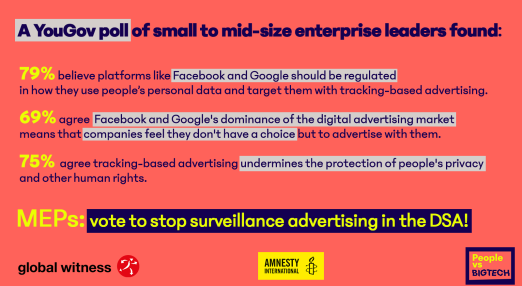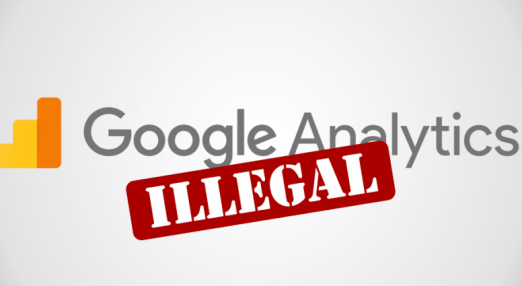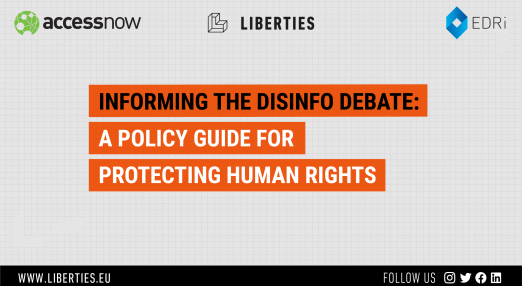Don’t let Big Tech fool you: Small businesses don’t want surveillance advertising
Tracking-based advertising has become all pervasive in the digital world. Amnesty Tech's new research shows that small businesses know very well how harmful these practices are to human rights but have little alternative.
Filter resources
-

Don’t let Big Tech fool you: Small businesses don’t want surveillance advertising
Tracking-based advertising has become all pervasive in the digital world. Amnesty Tech's new research shows that small businesses know very well how harmful these practices are to human rights but have little alternative.
Read more
-

Austrian DSB: EU-US data transfers to Google Analytics illegal
In a groundbreaking decision, the Austrian Data Protection Authority ("Datenschutzbehörde" or "DSB") has decided on a model case by noyb that the continuous use of Google Analytics violates the GDPR.
Read more
-

EDPS sanctions the European Parliament for illegal EU-US data transfers – among other violations
In January 2021, noyb filed a complaint against the European Parliament on behalf of six Members of the European Parliament over an internal corona testing website. The issues raised were deceptive cookie banners, vague and unclear data protection notices, and the illegal transfer of data to the US.
Read more
-

Booklet: Informing the disinfo debate
Today, 20 December 2021, EDRi, Access Now and Civil Liberties Union for Europe publish a joint report as a continuation of its 2018 predecessor, Informing the “Disinformation” Debate. The main outcome of this report is a set of policy recommendations addressed to the EU co-legislators focusing on: how to effectively mitigate fundamental rights risks that result from the manipulative methods deployed by large online platforms that exploit people’s vulnerabilities and their sensitive data; and how to combat disinformation in a manner that is fully compliant with fundamental rights standards.
Read more
-

What you need to know about the Facebook Papers
Facebook is now undergoing what may be the tech giant’s biggest crisis in its 17-year history. In October, The Washington Post reported that a second Facebook whistleblower came forward to the U.S. Securities and Exchange Commission, alleging that the company prioritises growth over combating hate speech, disinformation, and other threats to the public. The whistleblower’s testimony follows that of former Facebook employee Frances Haugen, whose legal counsel released what’s known as the Facebook Papers — a 10,000-page collection of internal reports, memos, and chat logs leaked to more than a dozen major news outlets.
Read more
-

Platform Regulation: Key takeways from Haugen’s hearing
On 8 November 2021, Frances Haugen, the Facebook whistleblower, participated in a hearing of the European Parliament’s Internal Market and Consumer Protection Committee (IMCO). While her testimony brought extremely important insights into Facebook’s opaque operations, it also showed that Haugen’s thinking of what the digital world in Europe should look like is influenced by her expertise in data science rather than public policy, as well as by her professional experience working with Silicon Valley’s centralised mega-platforms.
Read more
-

Facebook deleting facial recognition: Five reasons to take it with a pinch of salt
Voluntary self-regulation from tech giants is superficial and no replacement for actual legislation
Read more
-

Position Paper: The EDRi guide to 2,297 amendment proposals for the DSA
Various committees in the European Parliament have tabled such a large number of amendments for the Digital Services Act (DSA) that today, EDRi publishes a guide to support Members of the European Parliament in navigating those that would help create a successful, open, and rights-respecting European digital sphere.
Read more
-

noyb publishes the draft decision by the DPC in the case against Facebook
The Irish Data Protection Commission (DPC) has sent a draft decision to EDRi's member noyb - European Center for Digital Rights and informed noyb that the draft decision would be shared with the other European Data Protection Authorities for consultation. The case concerns Facebook's reliance on contracts for serving advertising to its users - the legal trick Facebook applied in May 2018 to bypass the GDPR.
Read more
-

Facebook Files: How a ban on surveillance advertising can fix Facebook
Facebook is engulfed in the biggest crisis to hit the company since the Cambridge Analytica scandal. The explosive revelations by whistle-blower Frances Haugen, is that Facebook’s leadership refused to make changes that would make their platforms safer because they “put their immense profits before people”.
Read more
-

Why you shouldn’t buy Facebook Ray-Ban smart glasses
Imagine that you are strolling along a tranquil beach in your swimsuit. Suddenly, a stranger walking toward you takes out their phone and starts recording you. You might work up the courage to ask how they dared to invade your privacy, and demand they delete the footage.
Read more
-

Algorithms of trauma: New case study shows that Facebook doesn’t give users real control over disturbing surveillance ads
A case study examined by Panoptykon Foundation, EDRi’s member in Poland, and showcased by the Financial Times, demonstrates how Facebook uses algorithms to deliver personalised ads that may exploit users’ mental vulnerabilities.
Read more
